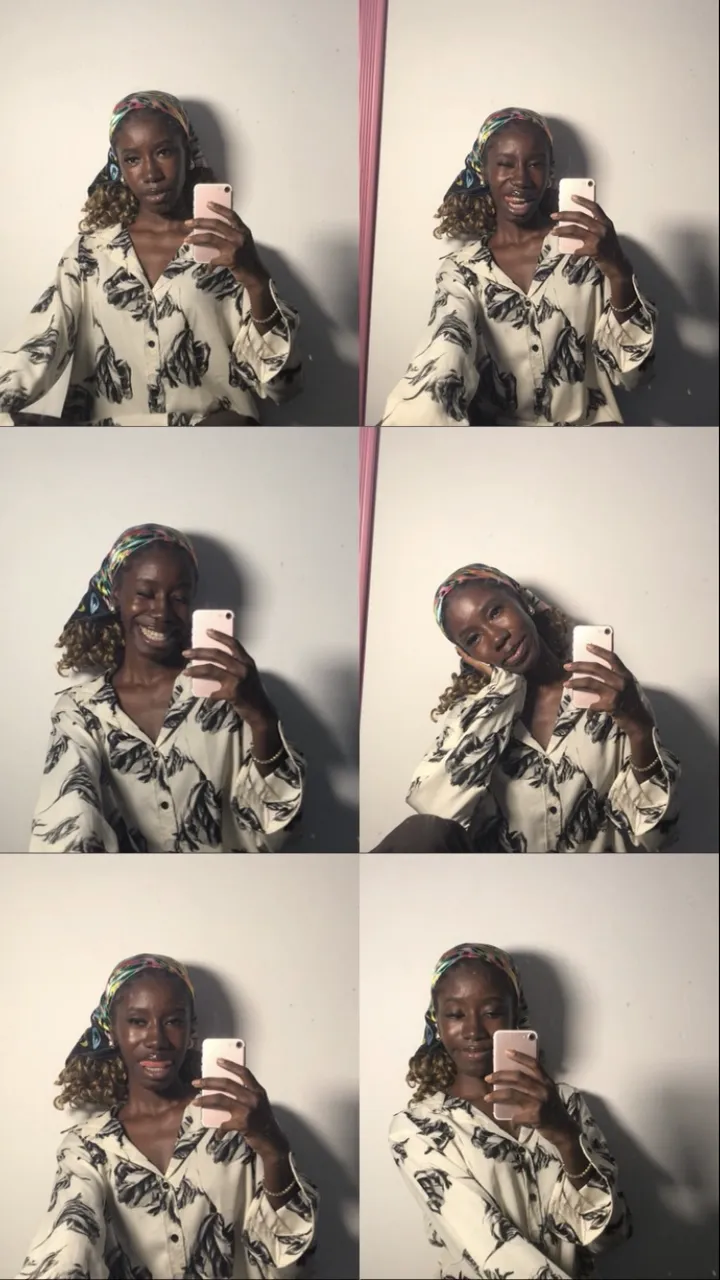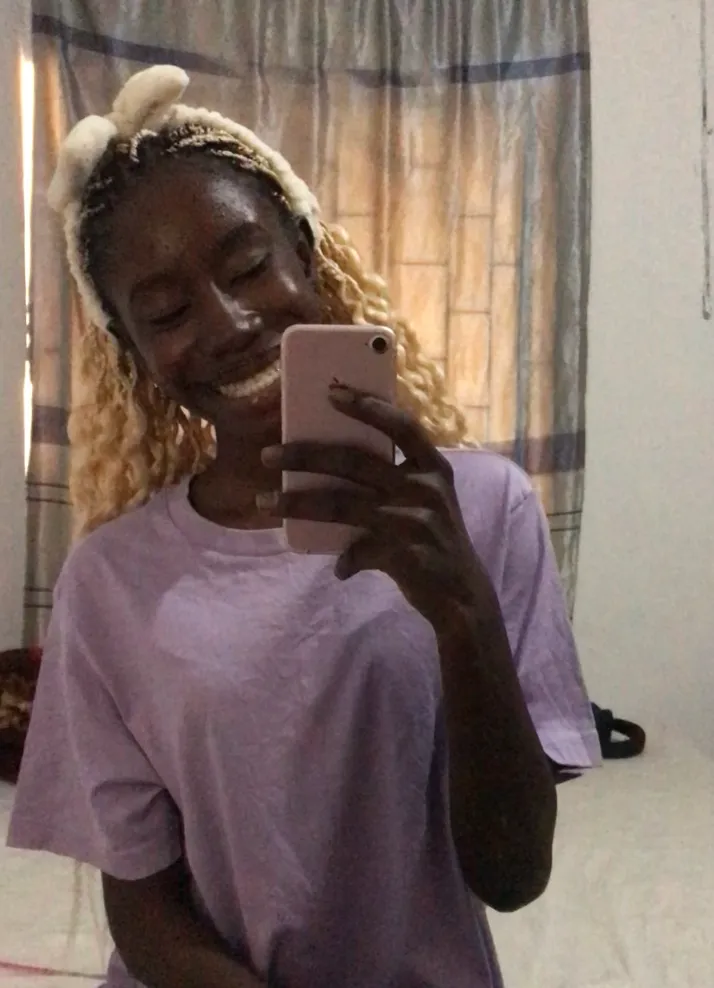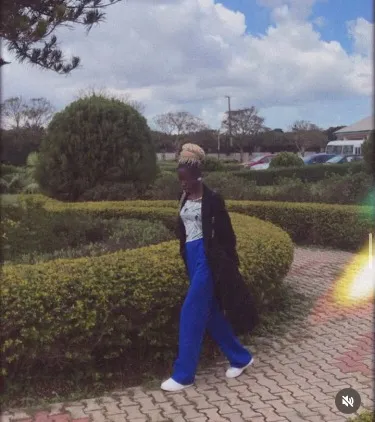This morning, I woke up with a couple of questions in my head:
Do you genuinely like who you are as a person?
Imagine you're someone else, and you meet YOU, would you like you? Would you want to be friends, business partners, or lovers with yourself?
Thing is, there was no trigger. Nothing happened to spark these questions. But just like in school, where you have to ask questions to get better at a subject, I believe life works the same way. Whether it’s asking those who have walked the path before you or asking yourself directly, questions lead to answers and answers lead to solutions. Solutions lead to growth, improvement or better out, progress.

So, I don’t find these questions “deep” or “thought-provoking.” I just see them as necessary. I’m someone who’s passionate about self-development and growth. And to grow, you need to ask questions, even the uncomfortable ones.
Now to the first question: Do I genuinely like who I am as a person?
One interesting thing I’ve come to realize is this, we’re never the villain in our own stories. There was a point in my life where I had to sit with myself and do some real reflection. I used to say, “I just don’t do well with female friends.” But after losing not one, not two, but three close friendships with women, I had to face a hard question: Am I the problem? If each of us were to narrate how the friendship ended, who would be the villain in each version of the story?
One thing I love about my self-development journey is that I’m not ashamed to recognize my shortcomings. Now, admitting them? That's a whole 'nother story. It wasn’t always easy, in fact, it took a while. There’s a huge difference between realizing you were wrong and actually admitting it out loud. That’s hard.
But through that reflection, I saw just how difficult it must have been to be friends with me back then. I was immature and irresponsible. And the funny thing? I didn’t even know it. Why? Because I was loyal. I was kind. I was jovial. And I thought that was enough.
For instance, there was this guy, a good friend of ours, but he had this playboy energy. He was cool with my girl squad and I, and when he started moving to one of my friends (who I knew liked him too), I pulled him aside. I had a chill, relaxed conversation with him and basically said, “Don’t hurt her.”
That’s the kind of friend I was. I thought that made me a good friend. And in many ways, it did. But loyalty alone isn’t enough. I wasn’t open. I lacked emotional intelligence. I can see all that clearly now.

And while I don’t think I was the villain, I also know that I wasn’t easy to be friends with. They hurt me, yes, deeply. But if they were to tell the story, I bet they’d say they were hurt too. And I can’t deny that it might’ve been difficult being my friend. But losing those friendships helped me find myself. They made room for the woman I am now and the one I’m still becoming. Those friendships didn’t align with the version of me I was meant to grow into, and as much as our bad habits might have triggered the separation, the real reason remains the difference in our visions.
For example, those friendships involved a lot of gossip. But the woman I’m becoming doesn’t gossip. So even though I didn’t know it at the time, my body and spirit was rejecting those relationships to make space for something more aligned.
Now to the second question: Would I date, befriend, or work with someone like me? Funny enough, I once asked an ex this same question or something similar. I said, “Would you want your daughter to date someone like you?” And his honest answer was no.
There’s something I call “the illusion of goodness” when it comes to how we view ourselves. The truth is, we all know our bad habits. Every single one of us. But the real question is: at your core, despite the good traits, would you genuinely want someone else to experience you? You might be loyal, kind, and honest. But if you’re also lazy, manipulative, or emotionally unavailable, do the good traits still hold the same weight?
I once had a friend who I thought was a really good person. I respected him deeply. The first thing I noticed about him was his intelligence. He had an air of arrogance, but underneath that, one of the most humble personalities I’d ever seen. He felt like a character straight out of the Wattpad novels I grew up reading. As I got to know him better, I saw his goodness. I saw the potential for greatness as a husband, father, leader, and philanthropist.
But over time, I started seeing other traits. I started seeing clearly who he was now, not just the version I thought or hoped he could be. Not the version it seemed he could be. And it was a rude awakening. He cheated on every partner he ever had, not once, not twice, but every time. With remorse, yes, but he still did it. And he never told them. So, not only was he unfaithful, but he was also deceitful. And manipulative.
It didn’t change the fact that he was kind. But it also didn’t cancel out the weight of his bad habits. So what does that say about “being a good person”?
It’s possible to be kind and toxic. To be generous and dishonest. Our good traits don’t erase the harm we cause, even if we don’t mean to.

I know I’m not the “good person” I sometimes believe I am. I know that in someone’s story, I’m the villain. And that’s okay. Because at the end of the day, we can't live our lives hoping to be the hero in everyone's book. But I do want to be someone I’d be proud to know. I want to be someone I’d trust with my business, my heart, my dreams.
So, dear friends, the key takeaway from this would be; If you met yourself today, would you like you? Would you want to be your own friend, partner, or co-founder?
Answering that honestly might reveal what still needs work and where real growth begins. Because even if you're 80% amazing, that 20% could still be someone else's breaking point. That one bad habit in another person's book might have cost them the chapter's happiness.
✧ ──────────────────── ✧ ──────────────────── ✧